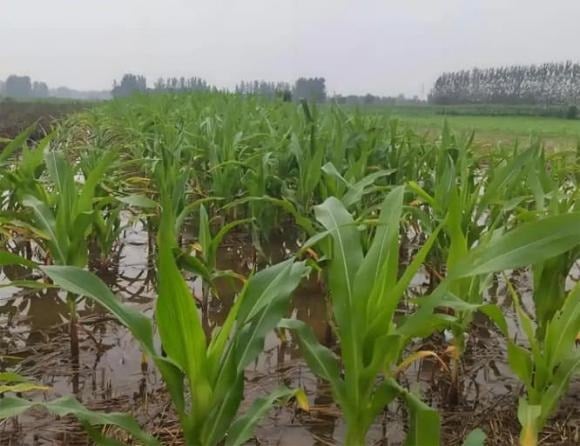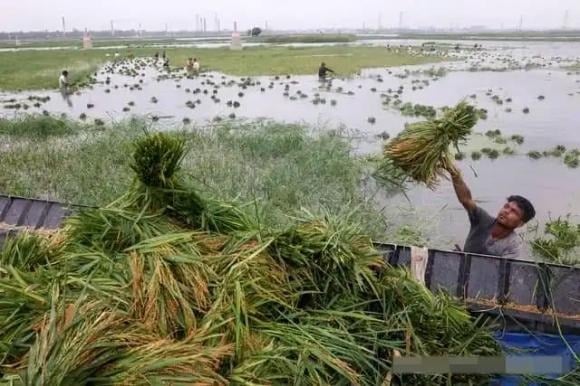What does it mean when it rains on this day? Why is there such a taboo? Let’s explore the deeper meaning behind this familiar agricultural proverb.
Time has quickly brought us to the 6th of June on the lunar calendar – a day that holds a special significance in folk culture. This occasion is associated with various familiar names such as “Tian Fu Festival”, “Bao Sa Festival”, or “Fu Yang Festival”, each carrying profound spiritual and agricultural meanings.
The folk proverb states: “If it rains on the 6th of June on the lunar calendar, there will be calamities everywhere.” Where does this saying come from? Does rainfall on this day truly foretell some impending misfortune? Let’s delve into the significance behind our ancestors’ warning.
Rain on the 6th of June: Ominous Sign or Nature’s Warning?
The proverb, “If it rains on the 6th of June on the lunar calendar, there will be calamities everywhere,” is a crystallization of our ancestors’ weather observation and farming experience. In essence, it is an agricultural warning – if it rains on this day, there is a risk of crop failure and even famine in the coming year.
The 6th of June in the lunar calendar usually falls around the time of Minor Heat, when the early summer rains have just ended and oppressive heat begins to set in. If it continues to rain during this period, it indicates abnormal climate patterns. Prolonged rainfall leads to increased water levels, resulting in waterlogging and root rot in plants, ultimately causing a significant decline in crop yield. In the agrarian society of the past, this meant the risk of food scarcity and even widespread famine.

Additionally, this day is referred to as “Sun Festival,” a day hoped for sunny skies to “dispel” any misfortune. If it rains instead, people believe it to be an ill omen, impacting health, crops, and even human lives.
While these ancient sayings hold valuable wisdom and experience, we must also approach them with a scientific perspective. Today’s weather is influenced by global climatic factors, so we cannot solely rely on folklore to predict the future. However, understanding and valuing our ancestors’ knowledge remains culturally significant and reminds us to be grateful for nature’s bounty.
Folk Beliefs About the 6th of June and the Significance of Today’s Weather
In the treasure trove of folk proverbs, the 6th of June in the lunar calendar is considered a crucial weather milestone, especially for farmers. These orally transmitted sayings not only reflect production experience but also emphasize the intimate connection between nature and crops. Here are three prominent proverbs, each carrying layers of meaning:
Firstly, “If it rains on the 6th of June, the rain will last till the beginning of autumn.” According to ancient wisdom, if it rains on this day, there is a high likelihood of an abnormally wet summer with continuous rain and little sunshine. Prolonged heavy rainfall not only causes waterlogging and root rot but also severely threatens crop yields. Farmers need to be proactive in implementing water drainage measures to protect their harvest.

Secondly, “If the 6th of June is cloudy, straw and chaff will turn into fertilizer.” This proverb carries a pessimistic tone, suggesting that prolonged rain will cause straw and crops to become damp and moldy. Rain on this day could be an ill omen, foretelling a year of poor harvest, rotten grains, and a detrimental impact on a year’s hard labor.
Thirdly, “If the 6th of June is sunny and bright, the rice will be as white as silver.” In contrast to the ominous signs of rain, a sunny day on this date signifies a bountiful harvest. Plants thrive, granaries fill with rice, and there is an abundance of food, signifying a prosperous and fulfilling life.
Additionally, folk beliefs include sayings such as, “If it rains on the 6th of June, rice will not bloom,” and “If it’s cloudy on the 6th of June, cattle are more valuable than gold.” All these proverbs convey a clear message: sunshine is what is hoped for on this day.
June is a critical period for plant growth, and the weather during this time plays a pivotal role. Whether it’s sunny or rainy today holds implications beyond mere weather conditions – it also carries the hopes and worries of farmers for the upcoming harvest season.
And today – the 6th of June on the lunar calendar – the weather forecast predicts thunderstorms and even heavy localized rain in many places. This raises concerns about the potential for abnormal rainfall this summer. Farmers should proactively implement water drainage measures and protect their crops from prolonged waterlogging.
So, did it rain in your area today? What are your thoughts on the proverbs left by our ancestors? Please share the weather conditions in your region and any measures you’re taking to safeguard the crops.
































